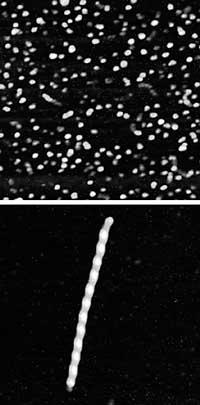Dopamine and Parkinson's disease

Parkinson's disease is characterized by a lack of muscle control. This feature is due to the shortage of a compound called dopamine, which develops when the cells that synthesize this substance die. However, scientists don't know what kills these cells.
Some laboratory tests have shown that an oxidized form of dopamine can contribute to the process that affects these cells. In healthy people this form is not formed in large amounts when dopamine is synthesized in the cytoplasm because it is protected against oxidation. Therefore, the concentrations of both forms (oxidized and not oxidized) are balanced. But in Parkinson's disease that balance breaks and the rusty form imposes itself.
The mechanism of these transformations is not known, so more research is needed. According to experts, this research should be done not only in the laboratory, but also with animals.
Buletina
Bidali zure helbide elektronikoa eta jaso asteroko buletina zure sarrera-ontzian











